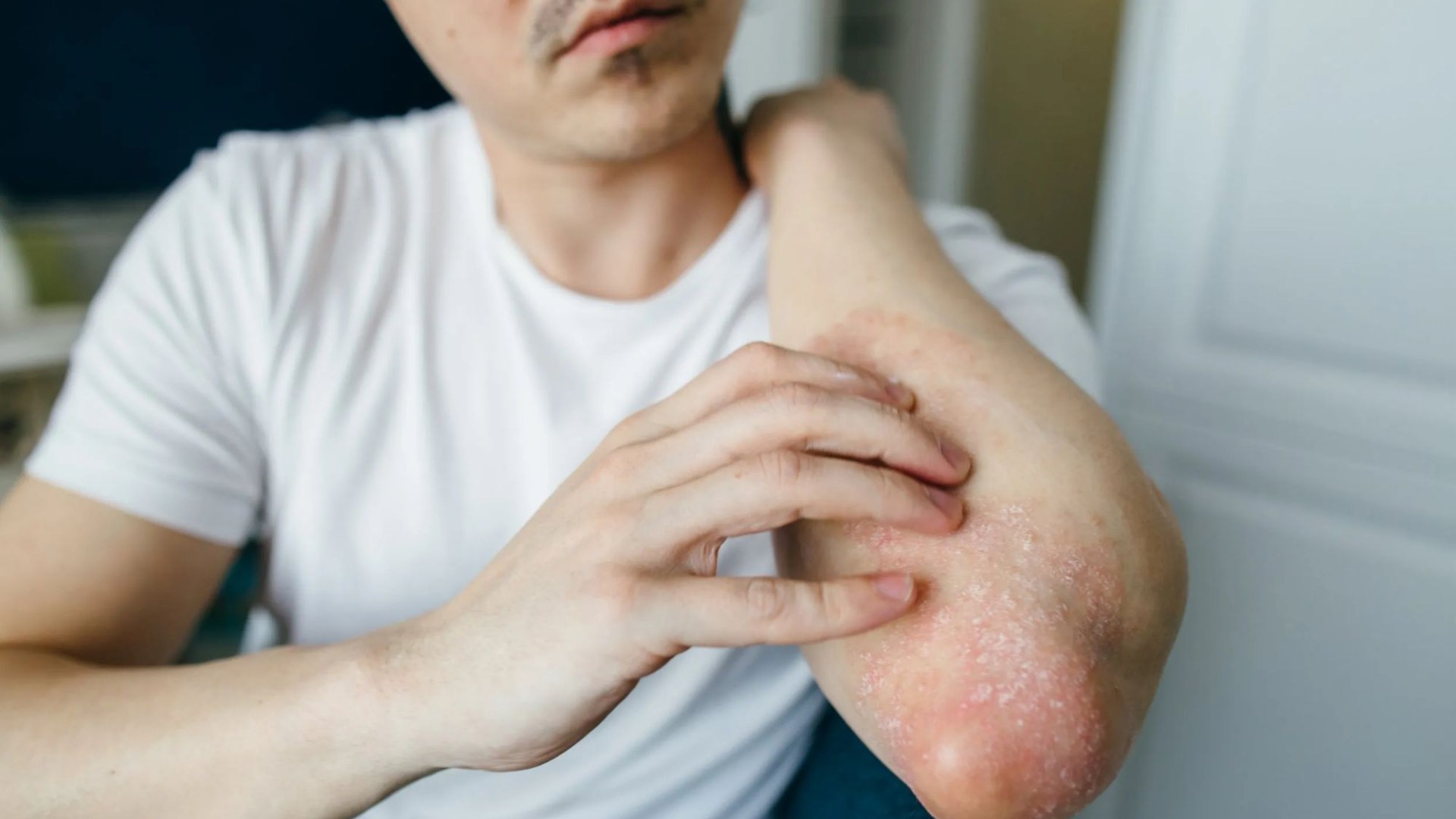Health
Eczema Alert: Understanding Symptoms and When to Seek Help

The Health Service Executive (HSE) has issued an important alert regarding eczema, emphasizing its potential impact on sleep and concentration. Eczema, a group of skin conditions, can cause severe irritation, making daily activities challenging for those affected. The HSE’s guidance aims to raise awareness about the symptoms and management of this common condition.
Understanding Eczema and Its Symptoms
Eczema manifests through various symptoms, including dry, itchy, and inflamed skin. It can affect individuals of all ages, from infants to adults, and may first appear later in life for some. According to the HSE, the condition can vary significantly among individuals, leading to mild symptoms such as small patches of dry skin or more severe cases characterized by widespread inflammation and intense itching.
The most frequently reported symptoms of eczema include:
– Dryness
– Redness or inflammation
– Itching
Eczema can occur on any part of the body, but it often appears on the hands, around the fingers, inside the elbows, behind the knees, and on the face and scalp. A lesser-known effect of eczema is its potential to disrupt sleep, leading to difficulties in focusing during the day.
Managing Eczema and Recognizing Flare-ups
Eczema flare-ups are a significant concern for those living with the condition. These episodes, during which symptoms worsen, can occur suddenly and may happen two to three times a month. The HSE advises individuals to refrain from scratching affected areas, as this can intensify itching, lead to bleeding, and increase the risk of infection.
To manage eczema effectively, the HSE recommends using gentle skincare products, keeping the skin moisturized, and avoiding known triggers. Different types of eczema, such as atopic eczema, discoid eczema, and varicose eczema, have distinct causes and symptoms, warranting tailored approaches to treatment.
While eczema itself is not an infection, it can elevate the risk of skin infections, particularly during flare-ups. The HSE urges people to consult their General Practitioner (GP) if they notice signs of infection, including:
– A sudden worsening of eczema
– Fluid oozing from the skin
– A yellow crust on the eczema or small yellowish-white spots
– Swollen and sore skin
– A high temperature or a general feeling of being unwell
Early medical intervention is crucial, as it can prevent infections from spreading and ensure appropriate treatment. By understanding eczema and its symptoms, individuals can seek help when necessary and manage their condition more effectively.
-

 Top Stories3 months ago
Top Stories3 months agoTributes Surge for 9-Year-Old Leon Briody After Cancer Battle
-

 Entertainment4 months ago
Entertainment4 months agoAimee Osbourne Joins Family for Emotional Tribute to Ozzy
-

 Politics4 months ago
Politics4 months agoDanny Healy-Rae Considers Complaint After Altercation with Garda
-

 Top Stories4 months ago
Top Stories4 months agoIreland Enjoys Summer Heat as Hurricane Erin Approaches Atlantic
-

 World5 months ago
World5 months agoHawaii Commemorates 80 Years Since Hiroshima Bombing with Ceremony
-

 Top Stories3 months ago
Top Stories3 months agoNewcastle West Woman Patricia Foley Found Safe After Urgent Search
-

 Top Stories5 months ago
Top Stories5 months agoFianna Fáil TDs Urgently Consider Maire Geoghegan-Quinn for Presidency
-

 World5 months ago
World5 months agoCouple Convicted of Murdering Two-Year-Old Grandson in Wales
-

 World5 months ago
World5 months agoGaza Aid Distribution Tragedy: 20 Killed Amid Ongoing Violence
-

 World5 months ago
World5 months agoAristocrat Constance Marten and Partner Convicted of Infant Murder
-

 Top Stories4 months ago
Top Stories4 months agoClimbing Errigal: A Must-Do Summer Adventure in Donegal
-

 Top Stories4 months ago
Top Stories4 months agoHike Donegal’s Errigal Mountain NOW for Unforgettable Summer Views









